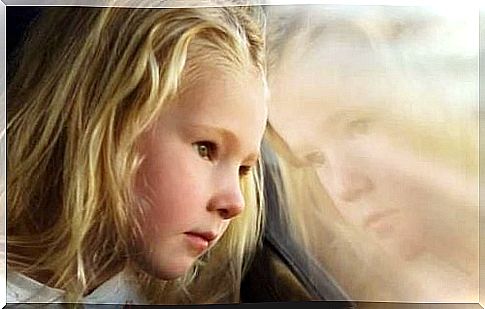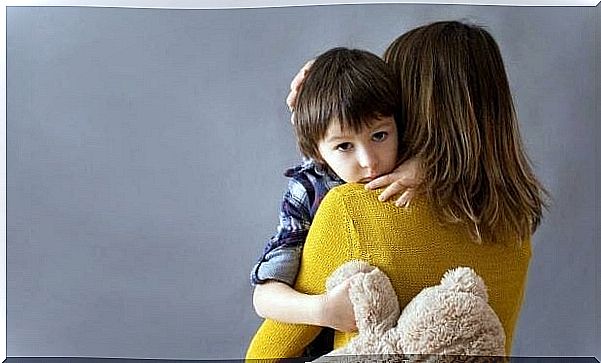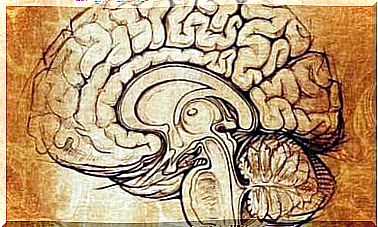Children Of Depressed Mothers

Human beings are largely the product of their environment. The people who take care of us during our first years of life play a decisive role in what we will become. Hence, the children of depressed mothers have certain characteristics that distinguish them from other children.
Some studies have shown that the brains of children whose mothers suffer from mental disorders are different. The amygdala is larger, although we still don’t know the neurophysiological reason for this. We also do not know its far-reaching consequences. It is a condition that occurs in emotionally disadvantaged children. Depressed mothers can even cause physical changes in their children.
Depressed mothers and their environment
Although not very common, some mothers may suffer from depression after giving birth. It’s called postpartum depression. It is partly attributed to the hormonal changes associated with motherhood. However, it is also related to the kind of relationship each mother had with her parents since birth.

Normally, postpartum depression disappears after a relatively short time. However, when there are other related problems, the grief gets worse. Thus, the phenomenon of depressed mothers emerges as a result of the parenting process. Other mothers were already depressed before pregnancy and this condition increases after birth.
Of course, maternal depression does not only occur during pregnancy. This condition can appear at any time. However, the most decisive effect on the child’s well-being occurs during critical periods, such as the early years of life or adolescence.
A Child’s Role in Depression
In some cases, depressed mothers want to comfort their children. This means that they play a part in their problems: being a source of comfort for their grief. The children become an oasis of well-being in the midst of this darkness.

It is likely that this is in fact beneficial for the depressed mother. In the long term, however, there can be negative consequences for the child. After all, subconsciously the child learns to play a role that does not suit him. He learns to ‘be there for their mother’ and not ‘for himself’. In other words, children internalize their caregiver’s needs and reject their individualization process.
In other cases, depressed mothers see their child not as a source of comfort but as a burden. This usually happens with unwanted pregnancies. These women may try to limit their presence in their children’s lives and limit their displays of affection. Ignore the baby. Ignore their needs. This creates a sense of alienation in the child.
Depressed Mothers and Adolescence
Depressed mothers can also have a major impact on adolescence. It is common for a depressed mother to compete with her child. This results in mutual accusations. The results of this interaction can become unpredictable.
Some teens turn their relationship with their depressed mother into a battlefield. There is no place for a truce. Usually this causes pain in both. These situations eventually lead to unmanageable and insurmountable distances.
Some children, because of insecurity or over-dependence, end up accepting the blame from their depressed mother. That’s why they decided to repair that great pain that they experienced with her. Thus, dependence becomes symbiotic and maintains itself over time. The umbilical cord stays in place even until death.

Depressed mothers may not be psychologically available to care for their child’s needs. They may need to have their depression treated professionally. Otherwise, not only will it be harder for them to enjoy motherhood, but they also run the risk of causing long-term damage.









